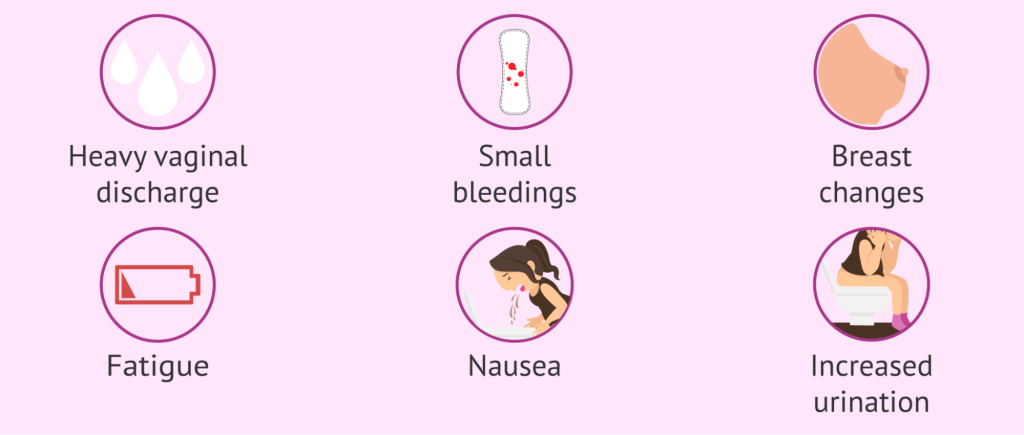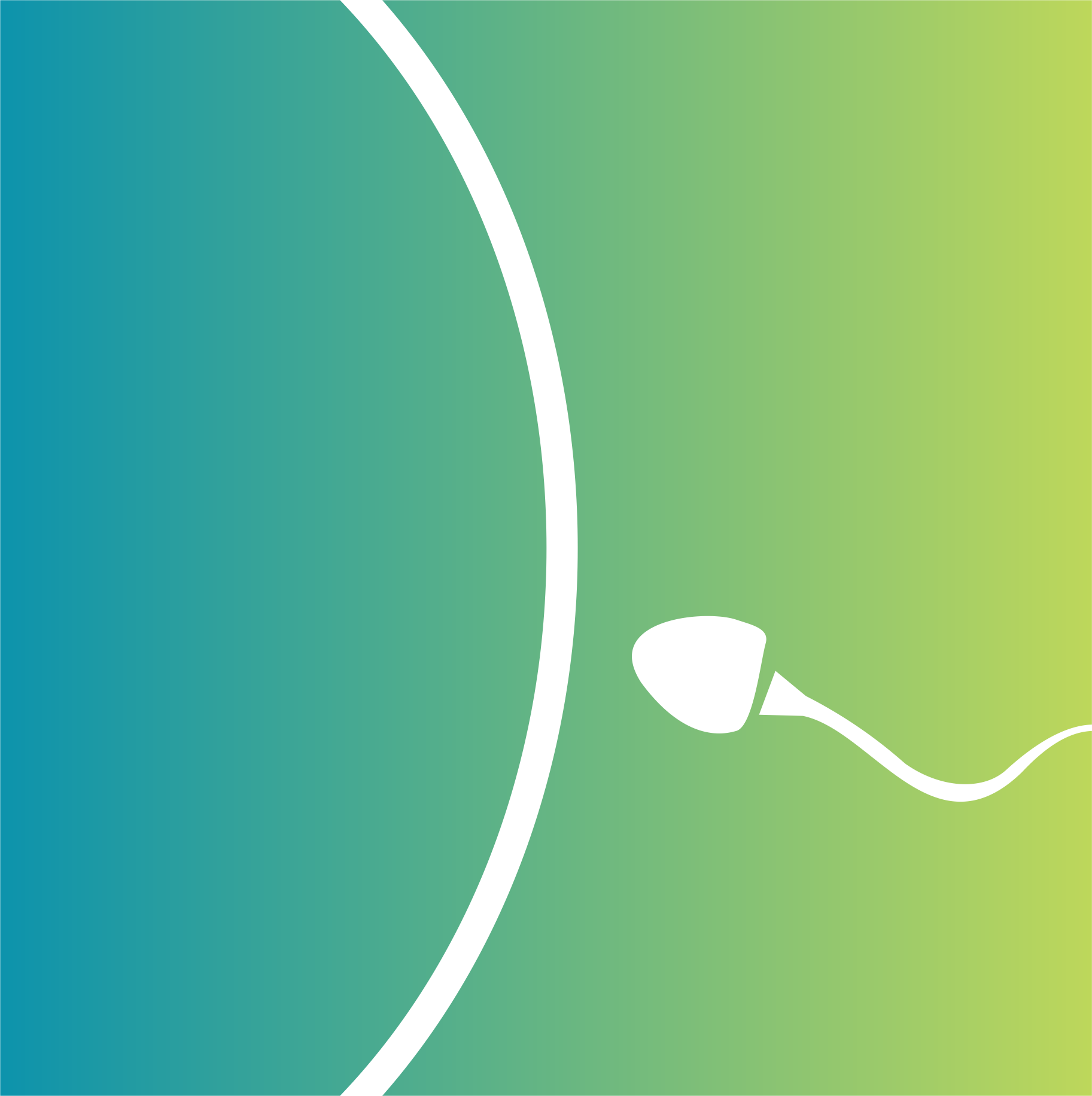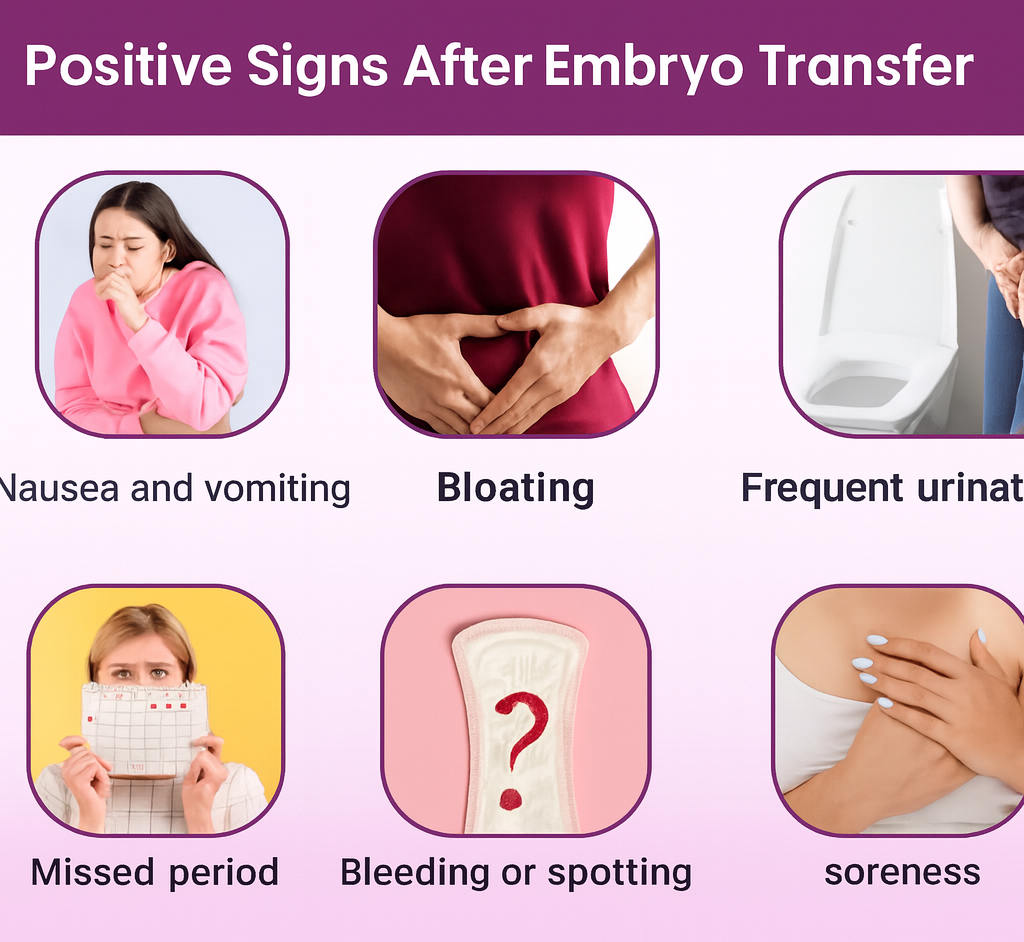Embryo transfer is one of the most emotional and meaningful steps in an IVF journey. After weeks of preparation, medical procedures, and hope, the embryo is gently placed inside the uterus. For couples, this moment feels like a new beginning. But what follows next is often the hardest part — the waiting period. This phase is usually called the “two-week wait” and during this time, every small change in the body feels like it might be a clue.
At Trinity IVF Ahmedabad, we know how much hope and curiosity patients carry during this period. Many women want to know about the early pregnancy clues after embryo transfer and how to recognize them. While every body reacts differently, there are certain signs that may indicate positive progress. In this blog, we will walk you through these signs, why they happen, and how you can manage this emotional waiting period.

1. What Happens After Embryo Transfer?
Once an embryo is transferred into the uterus, it begins the process of implantation. This usually happens within 3 to 5 days. If implantation is successful, the embryo starts releasing hCG (human chorionic gonadotropin), the pregnancy hormone. This hormone is what eventually gives you a positive pregnancy test.
However, until the test, your body might show small changes that could suggest pregnancy. Some of these are caused by hormones given during IVF, and some could be natural pregnancy signs.
2. The Emotional Two-Week Wait
The two-week wait is one of the most challenging parts of the IVF process. Every cramp, every feeling of tiredness, or even a small headache can trigger excitement or fear. It is important to remember that these signs may not always be reliable. But being informed can help you understand what is happening inside your body and reduce unnecessary stress.
3. Common Early Pregnancy Clues After Embryo Transfer
Here are some of the most common positive signs that may suggest successful implantation:
a) Spotting or Light Bleeding
Many women notice light spotting a few days after embryo transfer. This is known as implantation bleeding, and it happens when the embryo attaches itself to the uterine lining. It usually appears as light pink or brown discharge and is not heavy like a period.
b) Cramping or Pelvic Discomfort
Mild cramps are another common sign. They can be caused by the embryo embedding into the uterus. Some women describe it as a dull ache or a pulling sensation.
c) Breast Tenderness
Breast tenderness, swelling, or soreness is a classic early pregnancy symptom. This happens due to hormonal changes and is often more noticeable if you are taking progesterone.
d) Tiredness and Fatigue
Feeling extremely tired is a common pregnancy sign. Increased progesterone levels and the early growth of pregnancy can make you feel sleepy or drained.
e) Bloating
Hormonal changes slow down digestion, leading to bloating and heaviness in the stomach. This can sometimes be confused with PMS symptoms.
f) Vaginal Discharge Changes
An increase in white, milky vaginal discharge is another possible sign. However, this may also happen due to IVF medications, so it is not always conclusive.
g) Increased Urination
Some women feel the need to urinate more often. This happens because of hormonal changes and increased blood flow to the kidneys.
h) Nausea or Morning Sickness
Although morning sickness typically starts around week 5 or 6, some women may experience mild nausea earlier.
i) Appetite and Taste Changes
Sudden cravings, food aversions, or a metallic taste in the mouth may also appear as early pregnancy symptoms.
j) Mood Swings and Headaches
Hormonal fluctuations can cause mood changes, irritability, or mild headaches.
4. Why These Signs Are Not Always Conclusive
It is very important to understand that not all these symptoms guarantee pregnancy. Many of these signs can also be caused by fertility medications like progesterone or by your normal menstrual cycle. Similarly, the absence of symptoms does not mean the embryo has not implanted. Every body reacts differently, and the only sure confirmation is a pregnancy test.
5. Self-Care During the Two-Week Wait
The waiting period is not just about physical symptoms — it is also an emotional test. Here are some self-care tips from our team at Trinity IVF Ahmedabad:
- Stay calm and avoid overthinking small body changes.
- Eat a balanced diet with protein, fruits, and vegetables.
- Stay hydrated with enough water.
- Practice light exercises like walking or yoga.
- Engage in stress-free hobbies like reading, painting, or meditation.
- Talk to your partner or a counselor if anxiety feels overwhelming.
6. Frequently Asked Questions (FAQs)
Q1: When should I take a pregnancy test after embryo transfer?
Most doctors recommend waiting 10–14 days after embryo transfer for the most accurate results. Testing too early may give false results.
Q2: Is spotting always a positive sign?
Not always. Light spotting can indicate implantation, but it can also be a side effect of medications. If the bleeding becomes heavy, consult your doctor immediately.
Q3: What if I don’t have any symptoms?
It is completely normal. Some women experience no signs at all and still test positive for pregnancy.
Q4: Can IVF medications cause pregnancy-like symptoms?
Yes. Medications like progesterone can cause bloating, breast tenderness, or mood swings similar to early pregnancy.
Q5: Should I rest completely after embryo transfer?
Normal routine activity is fine. Gentle movement like walking is safe. Complete bed rest is not recommended unless advised by your doctor.
7. When to Call Your Doctor
Contact your fertility specialist if you experience:
- Heavy bleeding
- Severe abdominal pain
- Fever or unusual symptoms
These could indicate complications that require medical care.
Final Thoughts
The journey after embryo transfer is filled with emotions, hope, and anticipation. While the early pregnancy clues after embryo transfer can bring encouragement, they should not be seen as a final confirmation. At Trinity IVF Ahmedabad, we encourage patients to stay positive, focus on self-care, and wait for the official pregnancy test for true results.
This phase is about patience, strength, and trust. Remember, you are not alone — our team is with you every step of the way, supporting your dream of parenthood.

